Community Book Exchanges – Can you create one?
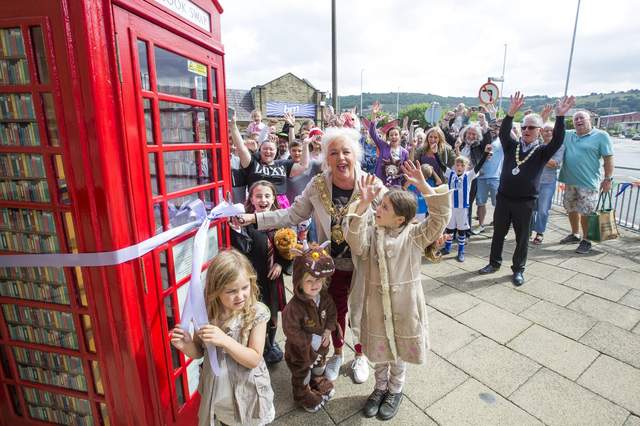
Mrs Dawson was my reception and first year class teacher at the Abbey Primary School in Erdington. She taught me the alphabet and how to write, introduced me to Janet and John books, the Ladybird series and helped me to extend the world that I lived in and to discover new worlds that lay well beyond 1960’s Birmingham. Everything I have achieved in life stems from her work because it led to me reading Dickens, Orwell, Covey, Pilger, Holyoake, Cornwell, Auden, Thomas, Laurence, Yeats, Tressell, Lee and Forster and the many other giants of literature that have contributed to who I am.
The UK claims a literacy rate of 99% and functionally that is correct but people in general and young people in particular read less than previous generations and use libraries less that their parents and grandparents did. Sadly they read fewer books and that is a great loss to them and has an impact on their communities. People are now more prone to believe the sound bites that are caught over breakfast, lunch and dinner because the faculty of analysis is no longer as strong as it was because people are not exposed to ideas and concepts in the way they once were through reading different and challenging book. Newspaper articles are accepted as truth rather than opinion to be analysed, mulled, discussed, explored and accepted or rejected.
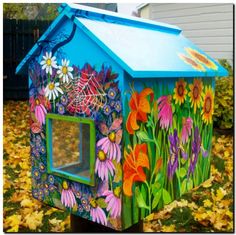
This is not a feature that is just obvious in the UK. It can be observed anywhere in the developed or the developing world where the most popular item that is carried is the mobile phone and is no longer the book that its owner is currently reading. The thoughtful reading of anything more than a few hundred words is in decline and Society is poorer. This has been recognised in a number of ways; Libraries seek innovative ways to engage with communities by becoming hubs and offering much more than books but libraries are also closing, being staffed by volunteers and being cut back. Volunteers go into schools and community groups to read to young people and to inspire them to read more themselves. Authors visit school and communities to read from their works and encourage others. There are many short lived initiatives that come and go to support and extend literacy.
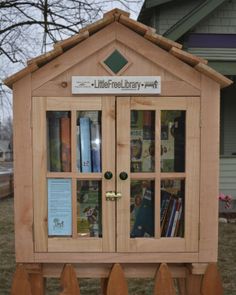
The issue has been recognised in communities in the UK and Europe where new approaches to introducing and inspiring reading in citizens of all ages are being tried. In rural communities in the UK defunct red telephone boxes are being turned into free libraries where people donate and exchange books that would otherwise have sat on a dusty shelf forever so that others can read it and then return it. In France and Italy I have noticed community book boxes appearing. They operate on the same principle as the UK phone box and are colourful additions to the local community ranging from simple cupboards on a village street to painted replica beach huts along the promenade to bookcases outside cafes. All have one thing in common. Operating on a zero cost basis they offer people who might not normally buy a book the opportunity to read one for free. The more sophisticated ones are divided into sections others leave you to browse which for me is always one of the joys of choosing a book. One converted phone box in Calderdale was even opened by the local Mayor.
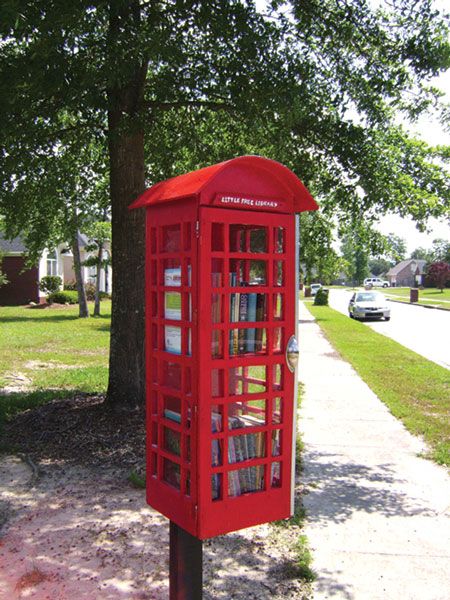
I’d like to encourage more communities to set up their own community book box, book shelves or phone booth library. You can do this by encouraging your children, family, friends and neighbours to donate, exchange and borrow books for others to read new books and then to borrow or exchange other books and spread the word.
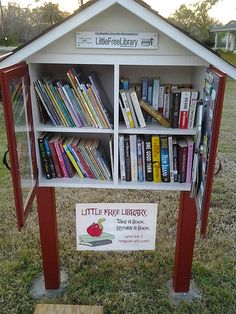
Can your local community centre, church, chapel, mosque, temple, shop, cafe, post office, sports ground or pub spare some space to set this up? Give it a go and see how it flourishes.
If you have ideas to share or would like some help get in touch with us at office@robertowen.org
Thank you Mrs Dawson!
